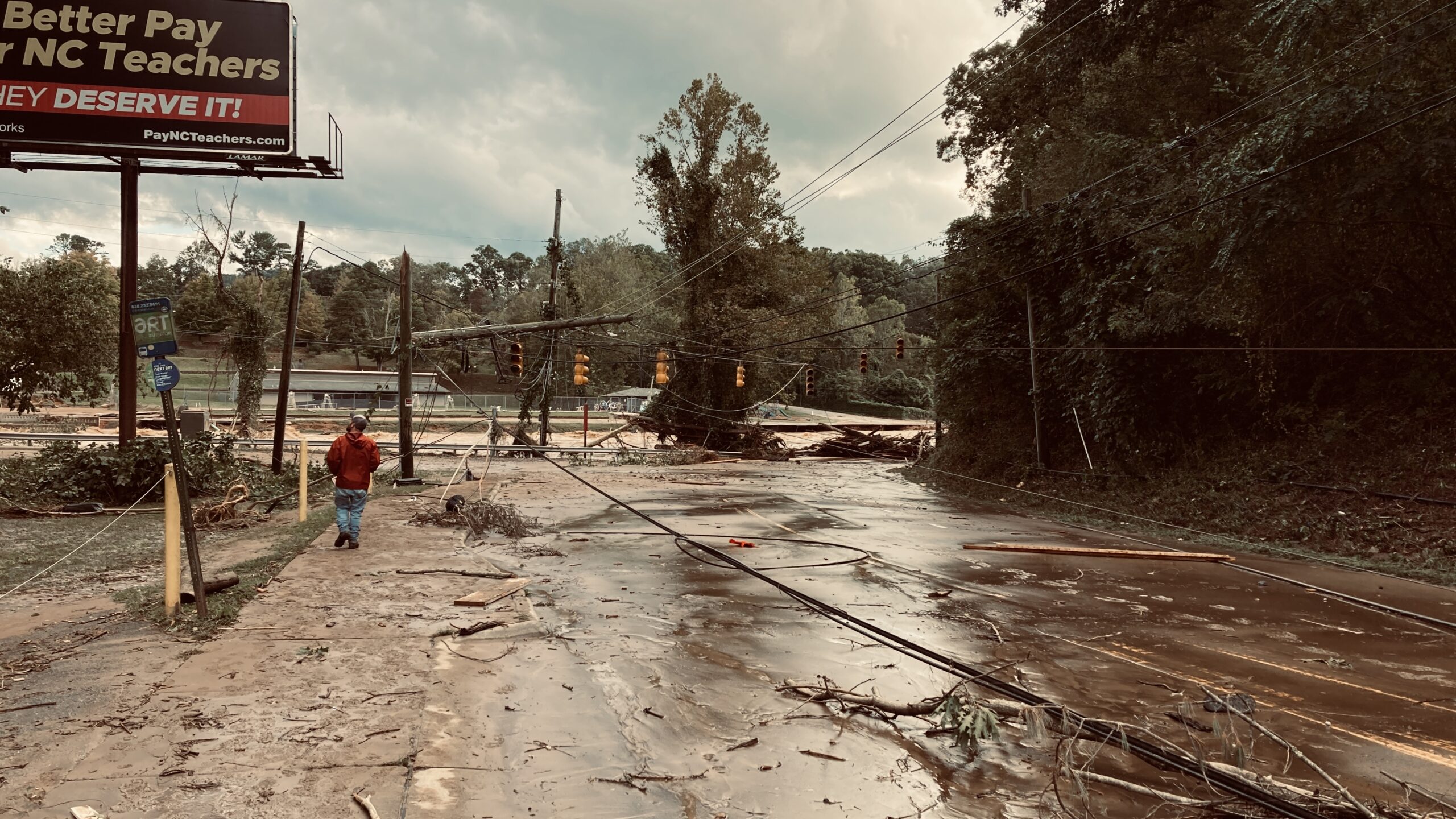The deeply intertwined crises of climate change, insurance rate hikes and cancellations, and housing injustice are escalating. State insurance regulators cannot tackle these problems on their own, but their role in aggravating or ameliorating them deserves greater scrutiny.
On September 26, Hurricane Helene—one of the latest storms intensified by the fossil fuel-driven climate crisis—made landfall in Florida and proceeded to rip through the Southeast, resulting in cataclysmic flooding, particularly in western North Carolina. Although Helene is among the deadliest and most destructive hurricanes in U.S. history, it took over a week to see fresh and meaningful coverage in the national press of any insurance regulators from the affected states.
Besides a September 29 reprint by Inside Climate News of a prescient Grist piece from September 24 on how “climate impacts put insurance commissioner races in the spotlight,” most of the initial media coverage consisted of pro forma updates about the severity of the damages and state authorities’ immediate responses, along with recommendations on how to obtain aid and avoid scams. At the local level, such bare-bones reporting is understandable in the immediate wake of a disaster. People are in survival mode, after all, not necessarily looking for detailed analyses of differing approaches to the home insurance crisis. That said, there were a few key exceptions in which local outlets dove deeper into how existing and aspiring state regulators are grappling with the destabilization of home insurance markets.
Nationally, Newsweek on October 4 published an article detailing some of the consequences for Florida residents of recently enacted insurance “reforms” pushed by Republican Gov. Ron DeSantis after he received millions of dollars from the industry. In addition to making it harder for homeowners to sue insurers, the DeSantis-led overhaul forced participants in Citizens, the state insurer of last resort, to switch to far more expensive private policies. As Newsweek noted, Florida Insurance Commissioner Michael Yaworsky approved the transfer of hundreds of thousands of Citizen policies to private companies in the weeks leading up to Helene.
On October 7, The Guardian covered Donald Trump and Kamala Harris’ respective trips to Georgia in the aftermath of Helene. In that piece, it was reported that Georgia Insurance Commissioner John King “took issue with the political implications of Harris’s promise of 100% federal reimbursement. Doing so would require an appropriation that hasn’t yet been made, essentially daring the House speaker Mike Johnson to refuse. ‘It’s political blackmail,’ he said.”
The same day, the Associated Press reported that a hearing in North Carolina over a pre-Helene proposal to allow insurers to hike homeowner premiums by 42% statewide, and by 99% in coastal areas, would proceed without delay. More national coverage came on October 9 when The New York Times ran a story about North Carolina’s insurance commissioner election. As the newspaper reported, the havoc wrought by Helene plus the aforementioned proposal to allow significant rate hikes, clarified the stakes of the close race between incumbent Mike Causey, a Republican elected in 2016 and 2020, and Democratic challenger Natasha Marcus.
Many Americans are likely not aware that the insurance industry is regulated primarily at the state level thanks to an obscure 1945 law called the McCarran-Ferguson Act. Even fewer have heard of the National Association of Insurance Commissioners (NAIC), a private trade group to which state-level insurance regulators belong—and from which they take their marching orders, as Jordan Haedtler and I explained in a report published earlier this year. The deeply intertwined crises of climate change, insurance rate hikes and cancellations, and housing injustice are escalating. Although state insurance regulators cannot tackle these problems on their own, their role in aggravating or ameliorating them deserves greater scrutiny.
The Revolving Door Project created a database containing information about all 56 state-level insurance regulators (50 states plus D.C., American Samoa, Guam, Northern Mariana Islands, Puerto Rico, and the U.S. Virgin Islands). It conveys information about elections, appointments, commissioners’ notable roles in the NAIC, as well as their professional backgrounds (many come directly from the insurance industry they’re now tasked with regulating, and some rejoin the industry after leaving), and more.
We intend to update this tracker periodically. (Last updated on November 6, 2025)
Notably, the aforementioned Times article was published the same day Hurricane Milton, another storm turbocharged by planet-heating pollution, hit western Florida—before people even had a chance to assess the full extent of Helene’s devastation.
We need better (i.e., more consistent and more critical) nationwide media coverage of state insurance commissioners to help people understand the important role played by these officials.
The above photo by Bill McMannis is licensed under CC BY 2.0.

